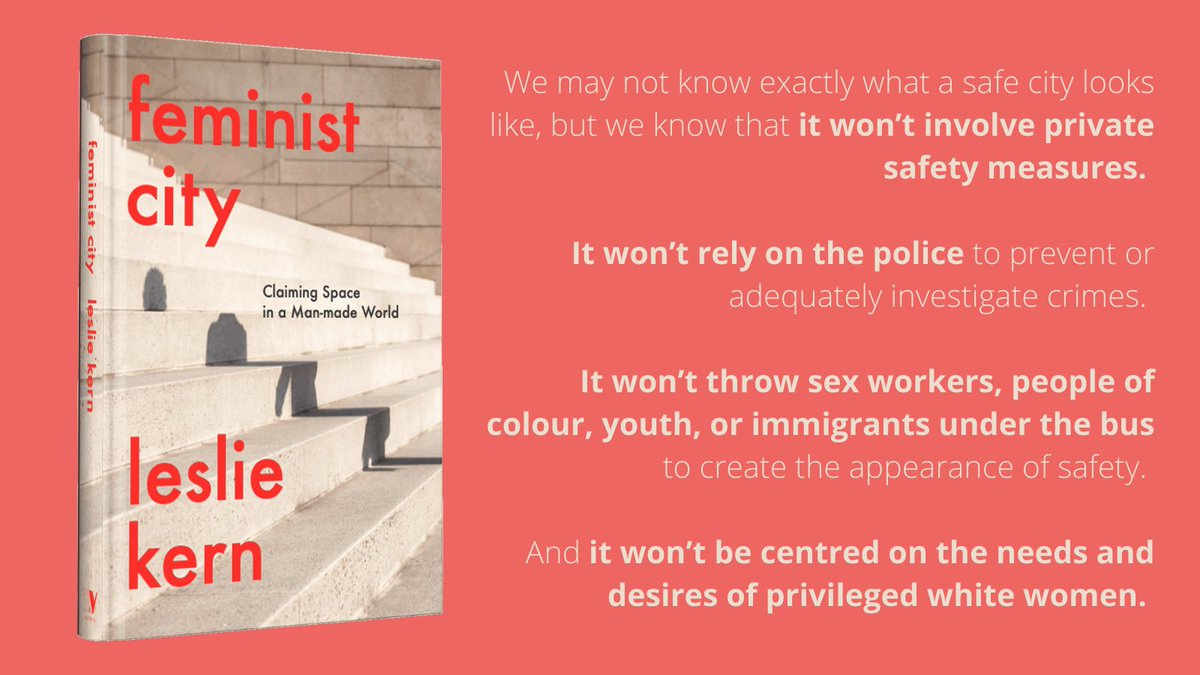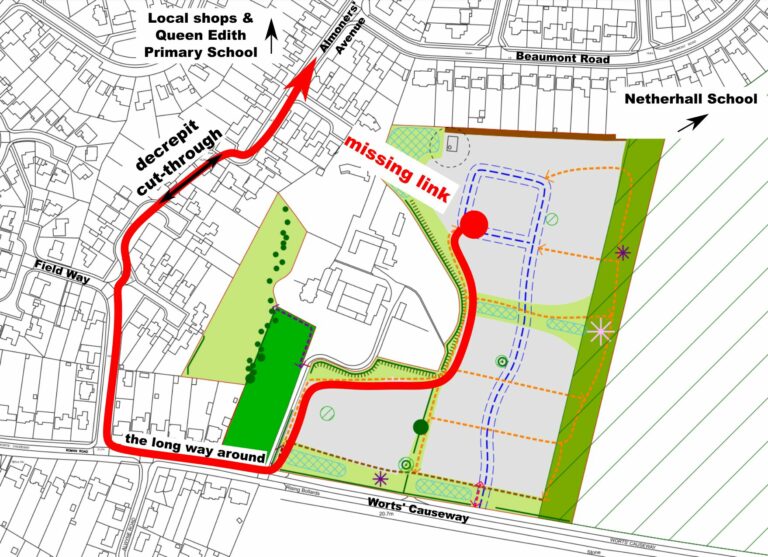Feminist City
Hello!
Welcome to my new newsletter. Or should that be newletter? No, it should be newsletter. I'm glad we've got that sorted nice and early.
Though you'll see plugs for music and live comedy events crop up from time to time, this is predominantly a newsletter about the city.
I have spent a lot of my life living on the edge of it, trying not to fall off.
I grew up a suburbanite, but always yearned for the bright lights. I tried to live in the city, but the rent was too damn high. I tried to live outside of it, but I missed the sirens and sense of possibility.
Then the pandemic happened, and living became something that largely took place inside our heads.
I am starting this new project as the physical world reopens. It may be tentative at first, like the tail of a dog who suspects you're about to take it for a walk. Hopefully it will increase in confidence, like the tail of a dog who knows you're definitely taking it for a walk. Perhaps one day this newsletter will put the lead on, and pack the poo bags and everything; but you've got to start somewhere.
Here we go then. Boop your smart card against the barriers, and let's get moving.
Feminist City: Claiming Space in a Man-Made World by Leslie Kern - Review
Women have always been seen as a problem for the modern city.
In the wake of the horrific death of Sarah Everard, I have been reading Leslie Kern's Feminist City: Claiming Space in a Man-Made World. Kern is a feminist geographer. and also a Canadian, though her conclusions apply to all spaces, not just Canadian ones.
She points out that "experts" on the city tend to be affluent, middle-aged, white men. Unlike Michael Gove, I have not had enough of experts, but I have certainly had enough of experts that look like Michael Gove. When the city is imagined, theorised, designed, and planned by such people, it should be no surprise that these - whether they look like Michael Gove or not - are whom the city serves.
As Kern writes: "Feminist architects, urban planners, and geographers have made significant interventions in their fields through rigorous empirical research into genedered experiences.
"Activists have pushed hard for important changes to urban design, policing practices, and services to better meet women's needs. And yet, a woman will still cross the street at night if a stranger is walking behind her."
Blending personal experience with erudition and research, Kern's own feminist geography eureaka moment came when she was pregnant.
As her body changed, Kern was robbed her of her previous sense of anonymity in the city.
"It's impossible to blend in when your body has suddenly become public property", she writes, and wonders whether society allows one to be a flâneuse - as opposed to a flâneur - while pregnant and / or pushing a push chair.
I experienced many personal eureaka moments while reading this book. The first was understanding how explicit the social agenda of suburban development in postwar America in particular.
I knew about "white flight"; but had not paused to consider that the gendered nature of suburbia is as long-lasting as its racial aspect.
Developers at the time argued explicitly that a suburban house would, for example, "help a woman change from Rosie the Riveter to a stay-at-home-mom". The man's post-war rage would be subsumed into mowing the lawn; the woman's ability to define herself by something other than a provider and carer for children would be stymied.
Kern argues that suburban infrastructre - long streets and cul-de-sacs of housing, largely only accessible by car, and without much nearby in terms of cafes, shops, and other communal services - both assumes and requires "the traditional heterosexual nuclear family".
Also obvious, now I've had it explicitly pointed out to me by someone who knows what they're talking about, is how our residential landscape is designed still with the same outmoded model. I thought instantly of a horrible new-build estate on the edge of Herne Bay in Kent: isolation, car-dependency, and demands of child care all baked in to an assumed family unit that ever-fewer of us organise ourselves into. Even just lost and cyclist through, I felt trapped. But as a white man, I am not the archtype it is designed - consciously or otherwise - to limit.
Fear of crime surveys ask participants about who they fear, and for women the answer is always men. But men as a group can't practically be avoided.
Feminist City contains excellent chapters on the right to be alone, activism, gentrification, and how to build up an environment suitable for female and queer friendship. But the section on fear - specifically, and let's be clear here, the fear of men, whether in or out of uniform - is a difficult but important read.
I have said to friends before, with supposed humour, and this is me paraphrasing wildly:
"I love walking the streets alone, late at night. As a shambling white, middle class-looking man, I know I'm lucky to enjoy that anonymity in relative comfort."
Talk about luxuriating in one's privilege. This section tackles both the actual violence women face, but also the fear of violence - a perfectly rational fear, as Kern rightly and eloquently argues. Feminists have fought for years to challenge and change the built environment - quite the struggle, as planning "considers itself an objective, rational, and scientific field" - but given the systemic nature of opression and power, fear can never merely be "designed out", no matter how wide and well lit the walkways and streets.
As with so many things, that the way ahead is an intersectional approach. We need to start by catering to the needs and perspectives of the most vulnerable. And for this, "the faces of urban planning, politics, and architecture have to change." Change - the change we must fight for - must be systemic.
The city is still the future. But the only way we'll transform it is by organising, sharing, and communicating our need and demand for alternative, feminist spaces, and push towards accurate representation in the areas that matter.
So that, one day, we can all be flâneuses.
You can buy Feminists City via Verso Books, or download the E-book.
Be The Landlord Of Your Dreams
Thanks to my blocking most advertisers on Twitter, I only receive ads for the truly awful and desperate stuff, like crappy gambling and mobile game sites. But today was the day the algorithm hit rock bottom. Brace yourselves:
Ah, the landlord game. And something something "blockchain".
Here's how the game should actually go: Buy up vast swathes of property you don't actually need! Hire some dodgy builders to bodge job those properties into tiny studio flats! Charge £1000 a month for a bunk bed with a toilet underneath! Kick them out when they ask you to fix the black mould and inconvenient shower-installed microwave!
Yeah, ok, I'd play that. I'd hate myself, but I'd play it.
Other Stuff What I Noticed This Week
This section probably needs a catchier title. But:
- SUVs and the city: they're bad, and they're only going to get worse. This report suggests a ban on adverts for these environmental disaster machines, on the grounds that what they promise (freedom!) couldn't be any further from the reality (being stuck in a traffic jam of identical other Land Rovers in Chelsea, being cross).
-
The next London Mayor will be the same as the current London Mayor. With Sadiq Khan's re-election being a near-certainty, The Murky Depths blog takes a look at his manifesto and finds... not very much, reflecting the mayor's under-reportedly limited powers. He's still going ahead with the Silvertown Tunnel, though. Sigh.
-
I know at least one person reading this hates the podcast I'm about to mention, but by a strange coincidence, Leslie Kern was the guest on this week's episode of Trashfuture, in which she discusses why "a feminist city is a police-free city".







